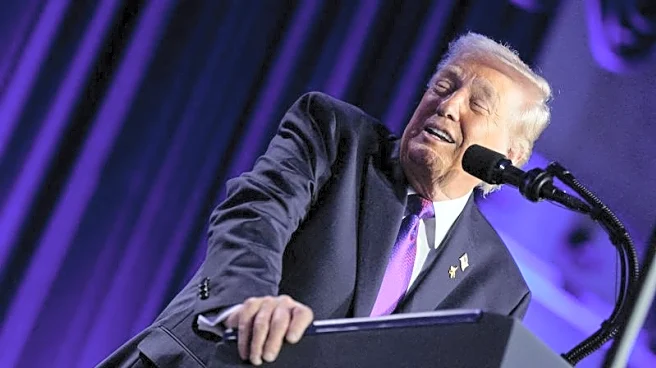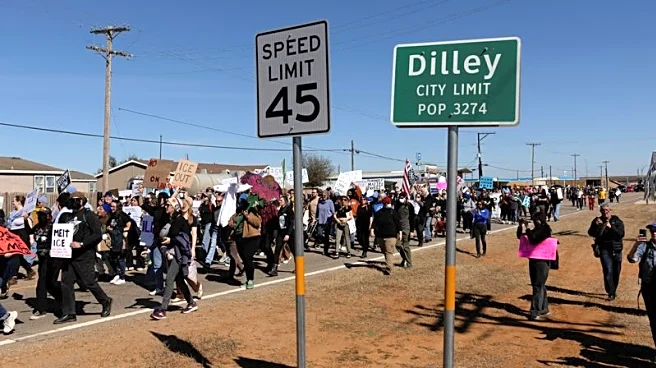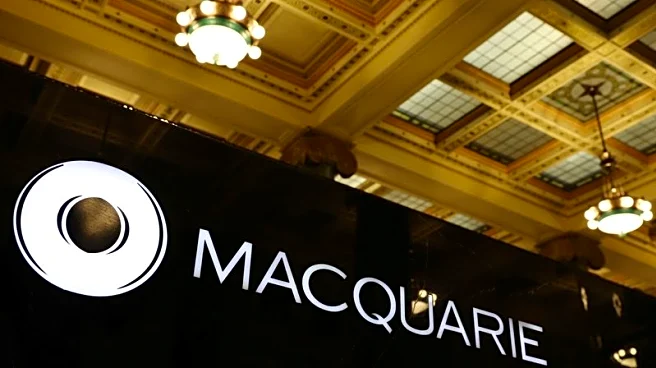What is the story about?
What's Happening?
Luigi Mangione's legal team has filed a motion in a New York federal court seeking the dismissal of certain charges, including the death penalty-eligible count, in the case of the assassination of UnitedHealthcare CEO Brian Thompson. Mangione, accused of fatally shooting Thompson in December 2024, faces both state and federal charges. His lawyers argue that the federal charge should be dismissed due to the lack of identification of other offenses required for conviction, claiming that stalking, the alleged other crime, is not a crime of violence. The defense also contends that Mangione's rights were violated during his arrest and the search of his backpack.
Why It's Important?
This case has significant implications for corporate security and the perception of the health insurance industry in the U.S. The assassination has fueled public resentment towards health insurers and raised concerns among corporate executives about their safety. The legal arguments presented by Mangione's defense could influence future cases involving federal charges and the application of the death penalty. Additionally, the case highlights the complexities of prosecuting crimes that intersect state and federal jurisdictions, potentially affecting legal strategies in similar cases.
What's Next?
The court's decision on the motion to dismiss could set a precedent for how federal charges are applied in cases involving firearms and other crimes of violence. If the charges are dismissed, it may impact the prosecution's ability to seek the death penalty, altering the course of the trial. The case may also prompt discussions on the security measures needed to protect corporate executives and the role of public sentiment in shaping legal outcomes.
Beyond the Headlines
The case underscores ethical considerations in the use of the death penalty and the balance between state and federal legal systems. It also reflects cultural tensions surrounding the health insurance industry and the broader societal implications of high-profile criminal cases. The public's reaction to the assassination and the subsequent legal proceedings may influence policy discussions on corporate security and the regulation of firearms.
















